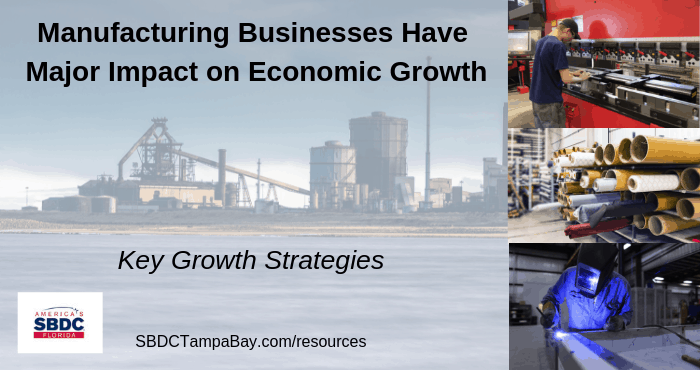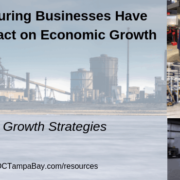The Future of Manufacturing and Challenges Ahead
by Pablo Arroyo | October 12, 2018
From its origins with the first assembly line by Ford in 1913, American manufacturing has seen a profound evolution in terms of the processes and technologies for transforming raw materials, components and inputs into finished goods. According to The Rodon Group, the consumer rise in the use of computers encouraged the adoption of computers in industrial manufacturing and the business to business (B2B) space. The new millennium led to the concept of off-site fabrication, robotics and 3D printing.
Since 2014, the industry has seen the rise of Industry 4.0, also known as the Fourth Industrial Revolution.
Embracing Industry 4.0
Manufacturers have experienced remarkable growth over the past two decades, increasing output and becoming more efficient. The increasing demand for consumer and industrial products in the U.S. and the global economy means a promising outlook for U.S. manufacturers. However, success depends on how manufacturers are able to compete and able to adapt to changing conditions. As described above, the new era of manufacturing or Industry 4.0, means that manufacturing processes are computerized, such as in rapid prototyping, most commonly known as 3D printing. This evolution goes beyond simple automation and into cyber-physical systems and data exchange in manufacturing technologies known as Big Data and the Internet of Things (IOT).
Advanced manufacturing happens when modern software technology is integrated with the physical manufacturing processes, resulting in front-end automation. In the traditional model or back-end automation, product design started with computer-aided manufacturing (CAM), followed by robotic assembly, vision-based inspection and the processing of aggregated data to create manufacturing efficiencies.
In the new model, or front-end automation, the process starts with an online order, followed by an automated quote analysis that generates an automated toolpathing that is sent to the manufacturing equipment for production. Although this might sound like it’s out of a science fiction movie, this is happening today in many manufacturing environments in major industrialized countries. This initiative started in Germany and is expected to result in significant efficiencies in output and make manufacturers even leaner.
According to the Boston Consulting Group, German component manufacturers stand to achieve productivity improvements of 20 to 30 percent and automotive companies can expect increases of 10 to 20 percent.
For the U.S., this implies that a new generation of workers with specialized skills is needed. Recently, I had the opportunity to attend Roboticon Tampa Bay, a state-wide showcase on youth robotics and STEM (Science, Technology, Engineering, Math/Manufacturing) education event, sponsored by the University of South Florida. Clearly, robotics and games competitions will inspire young students to enter these exciting fields and pursue fulfilling careers with the manufacturers of tomorrow. Certainly, this event fit perfectly with the recent Bay Area Manufacturers Association (BAMA) – Made in Tampa Bay Expo and National Manufacturing Week 2018, held the first week of October.
U.S. manufacturers need to embrace new trends. Innovation will be imperative, not only in terms of product development but in terms of process optimization.
Stay tuned for the next article which will provide ideas to prepare manufacturers to deal with these challenges and tips on assistance and available resources.







Pablo Arroyo, MBA, CGBP, CME
Arroyo, Consultants, International Consultants 2, International Trade, TampaNASBITE Certified Global Business Professional (CGBP), Florida SBDC at USF, Tampa
Specialties: International Trade, Marketing, Business Planning, Startup Assistance
Pablo Arroyo has 17 years of experience in business development as an owner and business consultant in the public and private sectors. He is a Certified Global Business Professional (CGBP) and a Certified Marketing Executive (CME). He holds a bachelor’s degree in animal science, concentrating on international agriculture and agriculture economics, from the University of Missouri, and an MBA from the University of South Florida in marketing and international business. Arroyo was involved in strategic market expansion for companies from diverse sectors with emphasis on manufacturing, technology, agribusiness, food, tourism, hospitality, entrepreneurship and value-added enterprise development. Originally from Puerto Rico, he is fluent in Spanish and English.